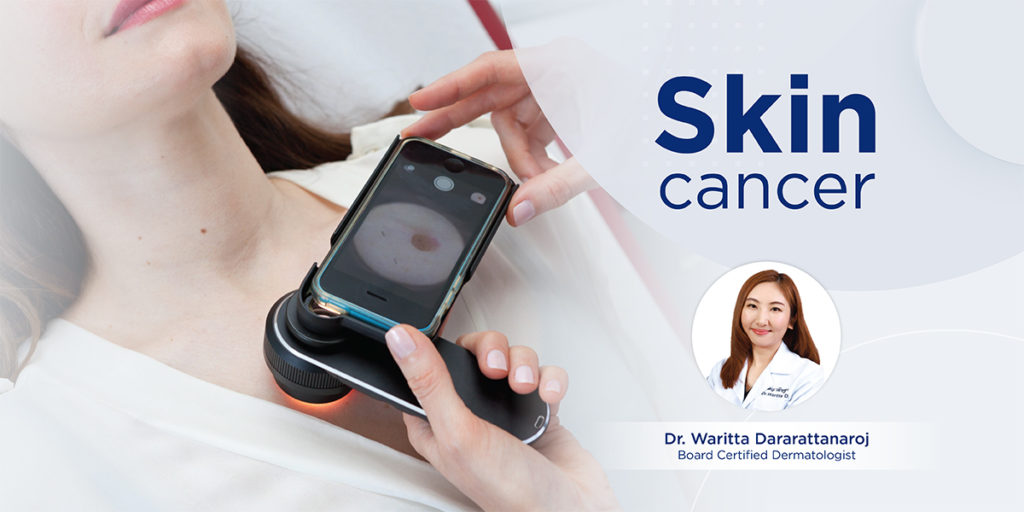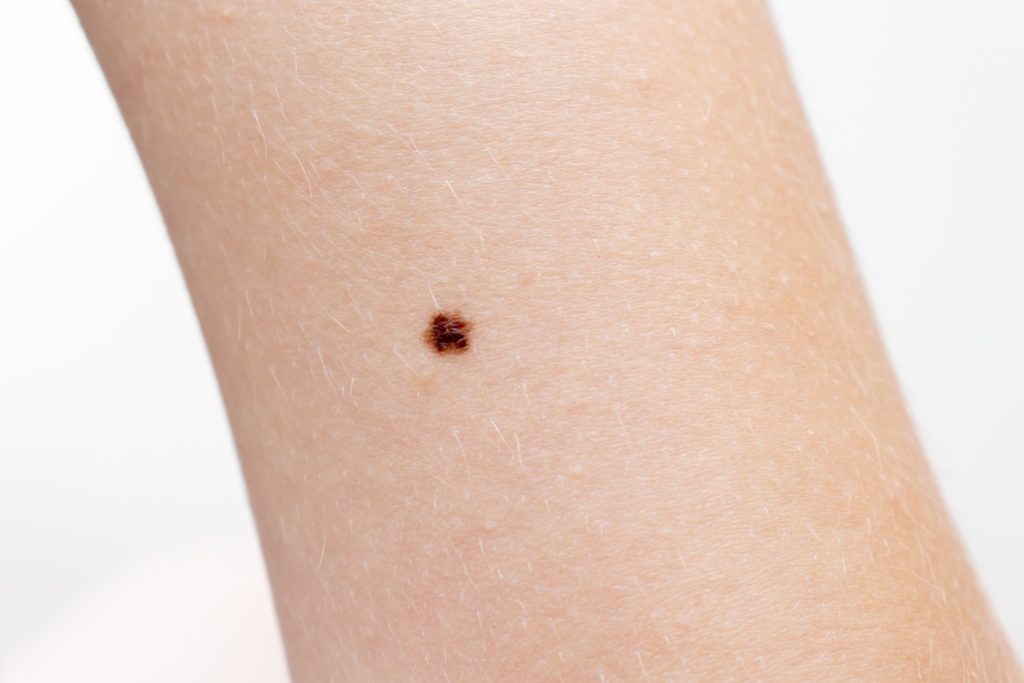
Fast Facts about skin cancer
- Skin cancer is one of the most common cancers. It can affect anyone, regardless of skin color.
- It’s treatable. Prognosis is very good, if early detected.
- Most common skin cancer are basal cell carcinoma (BCC), squamous cell carcinomas (SCC), and melanoma.
- BCC and SCC are more common, and have better prognosis.
- Melanoma is aggressive, and should be treated before spreading to lymph nodes.
Risk factors for skin cancer
1. History of excessive exposure to sun light and artificial ultraviolet light (e.g. tanning bed)
2. Sun-sensitive individuals (e.g., those who sunburn easily, or have fair skin tones, blond or red hair)
3. Personal or family history of skin cancer
4. Weakened immune system from medical conditions, or immunosuppressant drugs
5. History of radiotherapy and chronic burn wound or scar
When to see dermatologist?
1. If you have risk factors, annual total body skin examination with dermatologist is recommended.
2. When you see suspicious spot
- Non-healing or recurrent sore, wound, ulcer or eczema-like lesion. It may ooze or easily bleed. It can feel tender.
- Semi-transparent, dome-shaped growth
- Crusty scaly patch
- Brown or black streak under a nail
- scar-like growth, or change to an existing scar especially on treated area of skin cancer, and severe burn scar
- Moles with “ABCDE” characters
ABCDE rule to spot melanoma
- Asymmetry: one half of the spot is unlike the other half
- Border: uneven, irregular or blurred border
- Color: more than 1 color
- Diameter: larger than 6 mm (the size of pencil eraser)
- Evolving: changing in any way above, or looks different from the others (ugly duckling signs)
Skin cancer prevention
1. Apply Sunscreen and lip balms with SPF
- Use enough amount of a water-resistant, broad-spectrum sunscreen with an SPF of 30 or higher before going outdoors, even on cloudy days.
- Reapply every 2 hours, or after swimming or sweating.
2. Wear sun-protective clothing:
- Dark or bright colors, densely woven cloth, loose-fitting, long-sleeved shirts and long pants or skirts
- Clothing with UPF of 30 to 50+ label
- Wide-brimmed hat
- Sunglasses
- shoes that cover your feet
3. Seek shade, avoid sun exposure, especially between 10 a.m. to 3 p.m., and avoid tanning bed.
4. Regularly perform skin self-exams
5. Annual total body skin examination with dermatologist, or see the doctor if you have suspicious spots.







